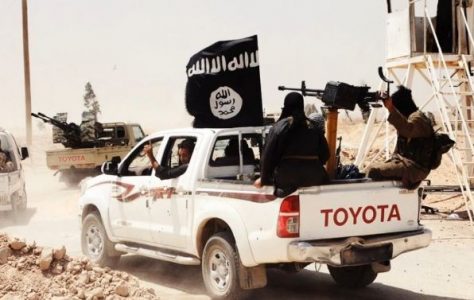
Netherlands wants tribunal to try Islamic State terrorists
The Netherlands called Thursday for the establishment of a tribunal to prosecute members of the Islamic State extremist group responsible for “mass atrocity crimes.”
Dutch Foreign Minister Stef Blok made the proposal at a U.N. Security Council meeting on the protection of civilians in conflict, saying there must be accountability and an end to impunity for violations of international human rights and humanitarian laws.
He said Islamic State fighters responsible for mass atrocities should be prosecuted, preferably in the region, and if feasible by “an ad hoc or hybrid international criminal tribunal.”
“I am fully aware of the complex obstacles on our road towards this goal,” Blok said. “But we have to keep in mind: Justice is a prerequisite of lasting peace and security.”
He said the Netherlands will organize a ministerial meeting on the prosecution of Islamic State fighters on the sidelines of the annual gathering of world leaders at the General Assembly in September.
“I invite Security Council members and others to join us on this road towards justice,” Blok said.
The Islamic State group’s self-declared “caliphate” that once spanned a third of both Iraq and Syria has been defeated on the battleground but its fighters are now staging insurgent attacks.
The atrocities its fighters and supporters committed have left deep scars. Thousands of members of Iraq’s Yazidi minority, mainly women and girls, were raped and enslaved, while men were killed. Suspected homosexuals were pushed off roofs to their deaths. Captured Americans and other Westerners were beheaded, and an unknown number of suspected opponents were killed.
A Security Council resolution backed by more than 60 countries to refer the Syrian conflict to the International Criminal Court was vetoed by both Russia and China in May 2014. A new attempt at the council to refer Syria to the ICC would almost certainly face a similar fate.
The General Assembly established an independent panel in December 2016 to assist in the investigation and prosecution of those responsible for war crimes or crimes against humanity in Syria.
In September 2017, the Security Council voted unanimously to ask the U.N. to establish an investigative team to help Iraq preserve evidence “that may amount to war crimes, crimes against humanity and genocide” committed by Islamic State extremists.
In March, the Iraqi government, with U.N. support, started exhuming a mass grave left behind by IS in the northwestern Sinjar region in the presence of Nobel Peace Prize laureate Nadia Murad, whose slain Yazidi relatives are believed to have been buried in the area. Murad said it marked the first exhumation of a mass grave containing the remains of Yazidis.
Source: Daily Mail





